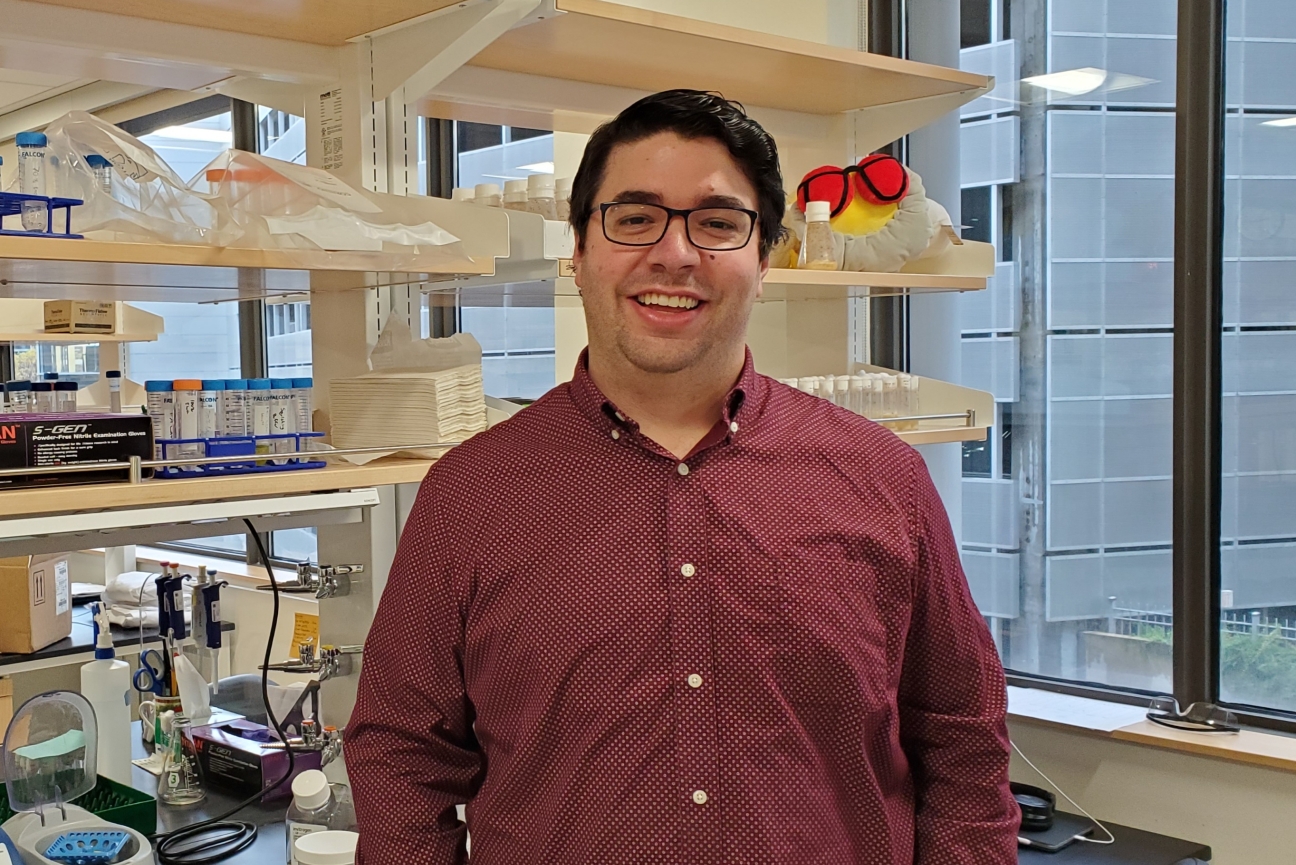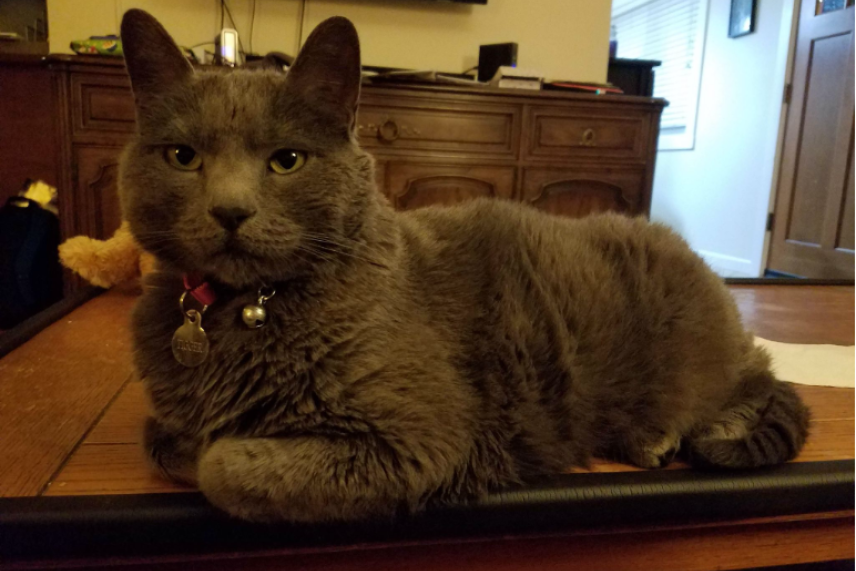
Jonathan Nelson
Courtesy of Jonathan Nelson
Meet a Whitehead Postdoc: Jonathan Nelson
Jonathan Nelson is a postdoc in Whitehead Institute Member Yukiko Yamashita’s lab studying how dividing cells maintain their genomes. We sat down with Nelson to learn more about him and his experiences in and out of the lab.
What do you investigate?
From a broad perspective, I have an interest in understanding how cells make sure that they get everything right when they divide, especially when copying the genome, and then if they do have errors, how they correct that. We've been focusing on the stem cells that make sperm in the fly, because they are making the cells that make the next generation of animals, so it's really important that they copy their genomes correctly in those cells. What we've been studying is a particular region of the genome called the ribosomal DNA, which is essential because it helps make the ribosomes that make all the proteins in our cells. It consists of hundreds of copies of the same gene duplicated over and over again, and because of this, it's really unstable. It's hard to ensure you always copy the exact right number every time, or if you get it wrong to copy the right number next time. What we found is a really surprising role for things called transposable elements, which are sort of thought of as these genetic parasites because they haven't been found to serve many functions in the cell other than making new copies of themselves. However, we found that they're really essential for maintaining this region of the genome in the cells that make sperm.
Have you done a lot of educational outreach in the past?
My wife is a middle school science teacher, and so prior to the pandemic, I would visit her classroom and speak with the students or I'd volunteer for science fairs. I also organized an event at a children's science museum to meet with pre-K through fifth or sixth grade students, and talk to them about why we do research on flies and the benefits of that. The first thing I tell them is that flies may seem really foreign to a lot of people, really different from us, but we actually share many characteristics, and so by studying how things function in flies, we can begin to understand how those things work in us.
What did you want to be as a kid?
As far back as I can think of, I had a strong interest in science, but I think the first thing I wanted to be was probably a professional athlete. I also remember wanting to be a paleontologist. I was that kid who really liked dinosaurs.
Did you have a favorite dinosaur?
I don't remember having a strong favorite when I was a kid. My daughter now, though, her favorite is the T. rex, and I told her I really like the Stegosaurus because they're so unique with all the spikes all over them.
What are your hobbies?
I played a lot of sports growing up and I have always liked watching sports. I grew up in the 90s in the state of Illinois, so I was a Michael Jordan kid. I never really played basketball but it was definitely influential; that was the dream of almost every kid my age in that area. Now, my wife and I will watch football and basketball, and she played volleyball in college, so we'll watch volleyball. I mostly spend time with my kids. I have a three-year-old and a three-month-old, and playing with them takes up a lot of my time at home. The one thing I do by myself as a hobby is play video games, that’s one hobby I’ve kept even after having kids. I think that in so much of science, the reward is intangible or very delayed. Being able to play a game and complete a level or a mission within 30 minutes, and get something accomplished and have some sort of positive feedback, is relaxing after a long day in lab where you won't know what the result of your experiment is going to be for days.
How else do you cope with the stresses of a research career?
That can be hard, but I try to keep a positive outlook. It’s important to be willing to try again when something does not work. I think the stress also gets balanced by the day-to-day positivity that can happen in lab, like talking with your lab mates or doing a journal club and diving into a paper. I’m an extrovert so I really like the social aspects of research. There's a lot of positivity that can be grabbed onto from other places in the lab even when the research aspect itself isn't going so well.
As an extrovert, how have you handled the isolation of the pandemic?
It definitely has been challenging. There was a lot of Zoom socializing. I used to host board game parties for the lab. Since the pandemic, we've had to do some virtual game parties using Zoom. We've kept it pretty simple with the virtual games, like Pictionary always works pretty well. We made up a sort of get-to-know-you bingo. That ended up being pretty fun because it turned into everyone just talking to each other. But it has been difficult only socializing through Zoom. Hopefully we'll have opportunities to get together again soon to do more in person.
What’s your favorite meal to make?
I think my favorite thing I've cooked recently was feta and spinach enchiladas with sauce made from scratch. I learned how to do that recently and it turned out really good.
Do you have any pets?
I have a cat Tigger who has been with me since close to the start of grad school. Before I had kids, my camera roll was all cat photos. Now it’s mostly photos of my kids.

Tigger
Courtesy of Jonathan Nelson
Where do you see yourself in ten years?
Ten years from now I'd like to see myself running my own lab at an academic institution, making exciting discoveries about fundamental aspects of cell division and features of the germline (the cells that make eggs and sperm). I’d hope to use that position to train the next generation of scientists, with many graduate and postdoctoral trainees in my lab. I’d also like to communicate with the general public, whether through interactions at schools and museums or in other ways, to continue to help make science accessible for everyone.
Topics
Contact
Communications and Public Affairs
Phone: 617-452-4630
Email: newsroom@wi.mit.edu


